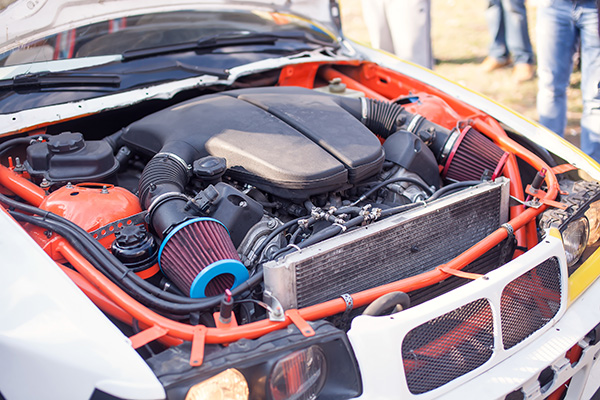
Hearing a whining noise when you accelerate can be frustrating, and in some cases, it’s a sign of a developing problem under the hood. While some sounds are harmless, others can point to issues with your belts, transmission, power steering system, or even your engine. The tricky part is determining whether the noise is just an annoyance or an early warning of a more serious mechanical failure. Ignoring it could lead to bigger, costlier repairs down the road. Knowing the possible causes and when to seek professional attention can help keep your car performing at its best.
Common Causes of Whining Noises
A whining noise can come from various parts of your car, depending on the pitch, volume, and when it occurs. Some issues are simple fixes, while others require professional attention to prevent costly repairs.
1. Worn or Loose Serpentine Belt
The serpentine belt powers essential engine components like the alternator, power steering pump, and air conditioning compressor. Over time, it can wear out, stretch, or crack, leading to a high-pitched whining or squealing noise, especially during acceleration.
A loose or failing belt can also cause performance issues, including weak power steering or a battery that won’t hold a charge. If you suspect a worn serpentine belt, it’s best to have it inspected and replaced before it snaps.
2. Power Steering Pump Issues
If your car whines more when you turn the wheel while accelerating, the power steering pump could be the culprit. Low power steering fluid or a failing pump can cause a whining sound, often accompanied by heavier steering.
Check your power steering fluid level and top it off if it’s low—but if the noise persists, there may be a leak or pump failure that needs professional attention.
3. Transmission Problems
A whining noise that gets louder as your speed increases may point to transmission trouble. Automatic transmissions rely on fluid to lubricate and cool moving parts. If the fluid level is low or the fluid is old and degraded, you might hear whining or even experience delayed shifting.
Manual transmissions can also develop whining noises due to worn-out bearings or gears. If you hear the noise in every gear and it doesn’t go away, it’s time to have your transmission checked before the problem worsens.
4. Differential or Drivetrain Issues
The differential is responsible for distributing power between your wheels, and if it’s low on fluid or experiencing internal wear, it can produce a whining or howling noise. This is especially noticeable during acceleration or when turning.
Worn-out bearings or driveshaft components can also create whining noises. If the sound is coming from the rear of the vehicle, it’s worth having the differential fluid checked and replaced if needed.
5. Turbocharger Whine (For Turbocharged Vehicles)
If you drive a turbocharged vehicle and hear a distinct whine when you accelerate, it could be normal turbo spool—but if the noise is louder than usual or sounds more like a siren, it could indicate a boost leak or failing turbo bearings. A professional diagnostic can determine whether your turbocharger needs servicing.
When Should You Get Your Car Checked
Not every whining noise is an emergency, but if you notice any of the following, it’s time to have your car inspected:
- The noise is getting louder or happening more frequently.
- Your car hesitates or shifts roughly during acceleration.
- Steering feels stiff or inconsistent.
- There are leaks under the car, especially near the transmission or power steering system.
- The whining is accompanied by grinding or clunking noises.
If you're experiencing a whining noise when accelerating, getting a professional inspection at the right time can save you from major repairs down the road. Addressing the issue on time will keep your car running at its best.
Hearing a whining sound when you step on the gas? It’s better to catch the issue early. Stop by J & F Motors for professional service you can trust!